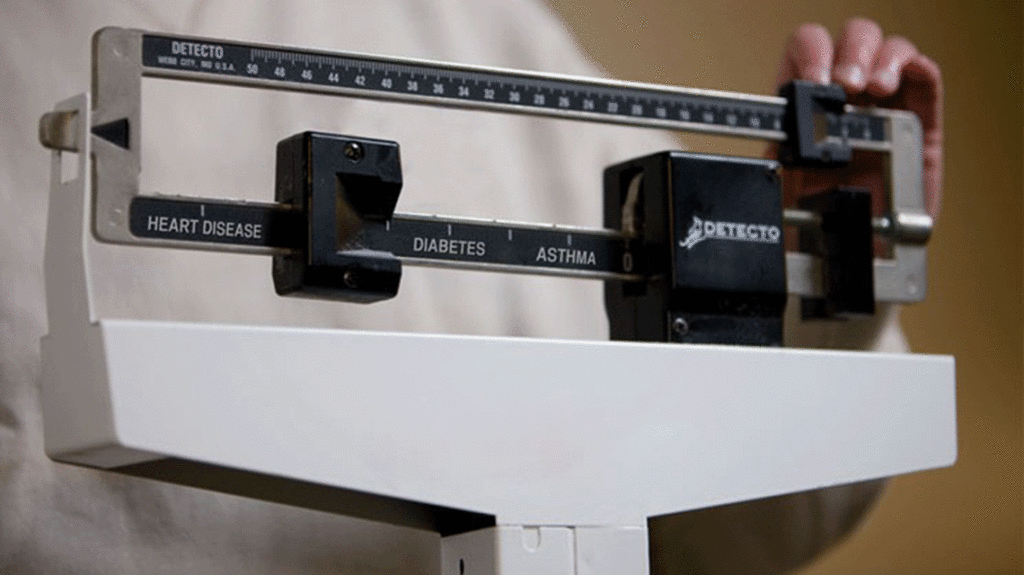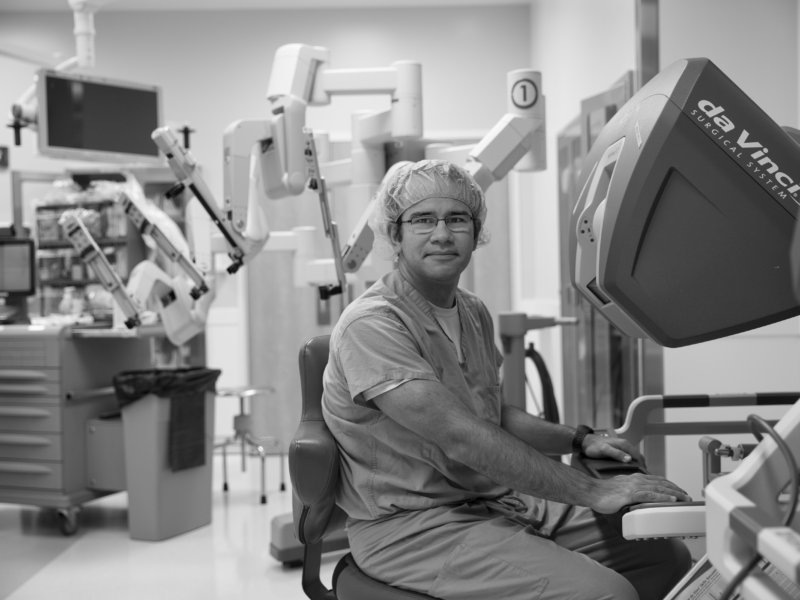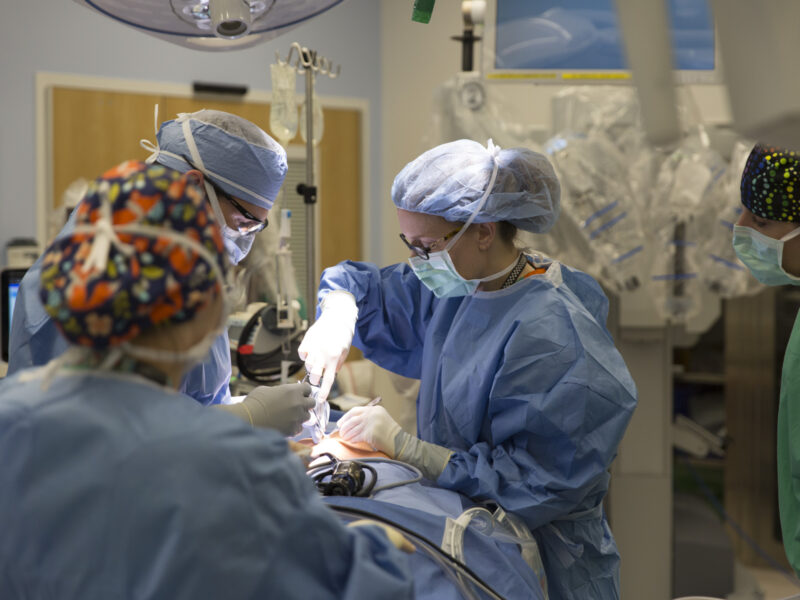Weight-Loss Surgery in Teens with Severe Obesity Offers Greater Benefits Than Waiting Until Adulthood
Weight-Loss Surgery in Teens with Severe Obesity Offers Greater Benefits Than Waiting Until Adulthood https://pediatricsnationwide.org/wp-content/uploads/2019/05/041310bs075-e1444849350838-1024x575.gif 1024 575 Katie Brind'Amour, PhD, MS, CHES Katie Brind'Amour, PhD, MS, CHES https://pediatricsnationwide.org/wp-content/uploads/2021/03/Katie-B-portrait.gif- May 16, 2019
- Katie Brind'Amour, PhD, MS, CHES

For those with severe obesity, bariatric surgery offers a safe and meaningful impact on weight, metabolic and cardiovascular health for adults and adolescents. Now, a study published in the New England Journal of Medicine has revealed that adolescents who underwent gastric bypass were more likely to experience a complete remission of diabetes and hypertension by 5 years after surgery compared to adults — who also had severe obesity as adolescents — who underwent the procedure.
The study included data from 161 adolescents in the Teen Longitudinal Assessment of Bariatric Surgery (Teen-LABS) study and 1738 adults with a history of severe obesity in adolescence from the Longitudinal Assessment of Bariatric Surgery (LABS) study who underwent gastric bypass. Teen-LABS and LABS are independent but similarly designed multi-center clinical studies funded by the National Institutes of Health (NIH) to collect prospective, observational data on efficacy, safety and outcomes for bariatric surgery. Teen-LABS is conducted at six U.S. clinical centers, including Children’s Hospital Colorado, Nationwide Children’s Hospital, Cincinnati Children’s Hospital, Texas Children’s Hospital, the University of Alabama at Birmingham, and the University of Pittsburgh Medical Center.
“Data show there’s a very high propensity for children with severe obesity to become adults with severe obesity,” says Marc P. Michalsky, MD, FACS, FAAP, FASMBS, surgical director of the Center for Healthy Weight and Nutrition at Nationwide Children’s Hospital, a principal investigator for the Teen-LABS program at the hospital and an author on the recent publication. “This study extends beyond some of Teen-LABS’ previous work, cataloging safety and efficacy for bariatric surgery in teens, to build a story that speaks to the true evidence-based advantage of offering these types of operations sooner rather than later.”
Average weight loss at 5 years post-surgery was similar among adults and adolescents who had undergone gastric bypass. Both groups also experienced significant drops in type 2 diabetes and hypertension prevalence and the need for related medications after surgery. However, adolescents were 27 percent more likely than adults to experience a complete remission of type 2 diabetes and 51 percent more likely to have a complete remission of high blood pressure.
“Through our research, we believe that the benefits of bariatric surgery likely outweigh the risks,” says Thomas H. Inge, MD, PhD, chief of Pediatric Surgery and director of the Bariatric Surgery Center at Children’s Hospital Colorado. Dr. Inge is also first author on the recent publication and serves as the study chair for Teen-LABS. “Furthermore, these new findings demonstrate that greater metabolic benefit can be achieved when surgery takes place earlier rather than later in life.”
The difference in transformative health changes by age may be attributable to the fact that adolescents have had less time to develop severe disease and related health complications from their cardiovascular and metabolic illnesses, which could make it easier for the body to reverse disease processes following major weight loss.
Not all age-related differences were positive, however. The study revealed that adolescents were more likely than adults to have iron and vitamin D deficiencies 5 years after surgery. There was also more variability in long-term weight loss among adolescents.
“It is clear we need more research in these areas, and to pay attention to these possible complications during the pre- and post-operative management,” says Ihuoma Eneli, MD, MS, FAAP, director of the Center for Healthy Weight and Nutrition at Nationwide Children’s and another principal investigator for Teen-LABS. “The findings speak to the need for a comprehensive, tertiary obesity center to manage these adolescents.”
Dr. Eneli suggests that focusing on patient adherence to their post-operative multivitamins and aiding older adolescents in the transition to adult bariatric follow-up may help with their long-term success. Her center already has research and clinical quality improvement endeavors underway in both of these areas.
“We’ll be looking at this study group again and will report 10- and 15-year outcomes data,” says Dr. Michalsky, who is also a professor of Clinical Surgery and Pediatrics at The Ohio State University College of Medicine. “As it stands, for physicians who see adolescents with severe obesity, there’s good evidence to start considering referral for bariatric surgery or to initiate the conversation with families and specialists sooner rather than later.”
Nationwide Children’s has been performing bariatric surgery for adolescents since 2004 and is one of the most established, experienced centers for the procedure in children.
Reference:
Inge TH, Courcoulas AP, Jenkins TM, Michalsky MP, Brandt ML, Xanthakos SA, Dixon JB, Harmon CM, Chen MK, Xie C, Evans ME, Helmrath MA, for the Teen-LABS Consortium. Five-year outcomes of gastric bypass in adolescents as compared with adults. New England Journal of Medicine. 2019;380:2136-2145.
Image credit: Nationwide Children’s
About the author
Katherine (Katie) Brind’Amour is a freelance medical and health science writer based in Pennsylvania. She has written about nearly every therapeutic area for patients, doctors and the general public. Dr. Brind’Amour specializes in health literacy and patient education. She completed her BS and MS degrees in Biology at Arizona State University and her PhD in Health Services Management and Policy at The Ohio State University. She is a Certified Health Education Specialist and is interested in health promotion via health programs and the communication of medical information.
-
Katie Brind'Amour, PhD, MS, CHEShttps://pediatricsnationwide.org/author/katie-brindamour-phd-ms-ches/April 27, 2014
-
Katie Brind'Amour, PhD, MS, CHEShttps://pediatricsnationwide.org/author/katie-brindamour-phd-ms-ches/April 27, 2014
-
Katie Brind'Amour, PhD, MS, CHEShttps://pediatricsnationwide.org/author/katie-brindamour-phd-ms-ches/April 27, 2014
-
Katie Brind'Amour, PhD, MS, CHEShttps://pediatricsnationwide.org/author/katie-brindamour-phd-ms-ches/April 28, 2014
- Posted In:
- In Brief







